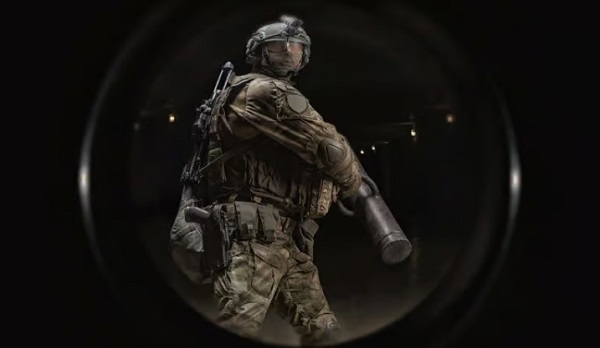MAiD
Canadian psychiatrist sounds alarm over Trudeau gov’t plan to expand euthanasia to the mentally ill

From LifeSiteNews
” someone not dying because of their condition, such as a mental disorder alone, seeking death is, by definition, suicidal. “
Dr. Harvey Chochinov, the well known professor of psychiatrisy from the University of Manitoba and the developer of dignity therapy, wrote an article that was published in the National Post on December 30, 2023 titled: Intensive compassionate caring — not MAiD — is the most effective way to address mental illness.
Chochinov writes:
It’s time to put the brakes on Medical Assistance in Dying (MAID) in Canada for those whose sole underlying medical condition is mental illness.
The federal government has tasked the Special Joint Committee on Medical Assistance in Dying to determine if Canada is ready to extend MAID eligibility, starting in March 2024, to patients with mental illness alone. Despite those convinced it is time, and safe, to launch what amounts to ‘psychiatric euthanasia,’ the special committee must pay attention to a murmur of protest that has grown to a roar: Ottawa, we’ve got a problem.
Current MAID eligibility requires a person have a grievous and irremediable medical condition. Unlike some cancers, and many neurodegenerative disorders, no mental disorder can be described as irremediable. To be sure, there are individuals whose mental affliction won’t improve, despite myriad treatments or psychosocial interventions. But there is currently no way to predict which patients won’t get better.
Studies of prognostic accuracy show psychiatrists are wrong half the time. I have cared for patients struggling with chronic suicidality; patients I worried might one day take their lives. I recall a woman with mind-numbing depression, who teetered precariously between life and death. One day, after years of countless drug trials, hospitalizations, electroconvulsive therapy, and various psychosocial interventions, she arrived for her appointment — three weeks into starting a new antidepressant — with a grin on her face.
‘The door is purple,’ she declared. I told her the door had always been purple, to which she replied, ‘I know, but now I care.’
Before that moment, no one — not me, not her friends or family and not anyone on The Special Joint Committee on Medical Assistance in Dying, nor any MAID assessor — could have predicted her recovery.
Chochinov then states that intensive, unwavering, compassionate care and caring — not MAID — offers the most effective way to address this kind of suffering.
The other reason not to launch psychiatric euthanasia is our inability to determine suicidality from those requesting MAID whose sole underlying medical condition is mental illness. According to the Canadian Association for Suicide Prevention, someone not dying because of their condition, such as a mental disorder alone, seeking death is, by definition, suicidal.
Similarly, the first item listed by the American Association of Suicidology differentiating physician hastened death and suicide is the patient must be dying. That certainly does not characterize patients who are mentally ill.
The euthanasia expansionists told the Special Joint Committee on Medical Assistance in Dying that “suicidality and having a reason to want to die are not at all the same.” Chochinov responds by stating:
We can say ‘six’ and ‘half-dozen’ are not the same as many times as we like. If we repeat it frequently, consistently and without equivocation, it might even sound convincing, but that doesn’t make it true.
Patients struggling with suicidality often have a reason to want to die, based on, for example, self-loathing, feeling like a burden or becoming worn down pursuing care and support that could sustain them. In those instances, the line between MAID and suicide simply vanishes.
Avoiding discrimination does not mean everyone is treated the same, but rather, that everyone gets equal access to what they need to thrive.
Time and again, committee members have asked witnesses when Canada’s psychiatric euthanasia program can be launched. I would suggest they behave like NASA. When a potentially catastrophic problem is identified before blast-off, space engineers don’t set an arbitrary new launch date, no more so than Health Canada announces a random release date of a new drug discovered to have unacceptable side-effects.
Ottawa, we have a problem.
The federal government would be well advised to scrap this mission. But if it insists on moving forward, launch should proceed only when the problems are solved, and not a moment sooner.
Reprinted with permission from Euthanasia Prevention Coalition.
Alberta
MAiD In Alberta: Province surveying Albertans about assisted suicide policies

Alberta’s government is launching a public engagement to gather input about legislation and policies around assisted suicide, also referred to as medical assistance in dying (MAID).
Medical assistance in dying is a process that allows an eligible person to receive assistance from a medical practitioner in ending their life. To be found eligible, a person must be suffering from a serious and permanent medical condition.
Alberta’s government is reviewing how MAID is regulated to ensure there is a consistent process as well as oversight that protects vulnerable Albertans, specifically those living with disabilities or suffering from mental health challenges. An online survey is now open for Albertans to share their views and experiences with MAID until Dec. 20.
“We recognize that medical assistance in dying is a very complex and often personal issue and is an important, sensitive and emotional matter for patients and their families. It is important to ensure this process has the necessary supports to protect the most vulnerable. I encourage Albertans who have experience with and opinions on MAID to take this survey.”
In addition to the online survey, Alberta’s government will also be engaging directly with academics, medical associations, public bodies, religious organizations, regulatory bodies, advocacy groups and others that have an interest in and/or working relationship to the MAID process, health care, disabilities and mental health care.
Feedback gathered through this process will help inform the Alberta government’s planning and policy decision making, including potential legislative changes regarding MAID in Alberta.
“Our government has been clear that we do not support the provision of medically assisted suicide for vulnerable Albertans facing mental illness as their primary purpose for seeking their own death. Instead, our goal is to build a continuum of care where vulnerable Albertans can live in long-term health and fulfilment. We look forward to the feedback of Albertans as we proceed with this important issue.”
“As MAID is a federally legislated and regulated program that touches the lives of many Albertans, our priority is to ensure we have robust safeguards to protect vulnerable individuals. Albertans’ insights will be essential in developing thoughtful policies on this complex issue.”
The federal Criminal Code sets out the MAID eligibility criteria, procedural safeguards and reporting obligations. The federal government has paused MAID eligibility for individuals with a mental illness as their sole underlying medical condition until March 2027 to ensure the provincial health care systems have processes and supports in place. Alberta’s government does not support expanding MAID eligibility to include those facing depression or mental illness and continues to call on the federal government to end this policy altogether.
Related information
Alberta
Alberta government announces review of Trudeau’s euthanasia regime

From LifeSiteNews
Alberta announced it ‘is reviewing how MAID is regulated to ensure there is a consistent process as well as oversight that protects vulnerable Albertans, specifically those living with disabilities or suffering from mental health challenges.’
The Conservative provincial government of Alberta is pushing back against the Canadian federal government’s continued desire to expand euthanasia in the nation, saying it will launch a review of the legislation and policies surrounding the grim practice, including a period of public engagement.
The United Conservative Party (UCP) government under Premier Danielle Smith in a press release said the province needs to make sure that robust safeguards and procedures are in place to protect vulnerable people from being coerced into getting euthanatized under the MAiD (Medical Assistance in Dying) program.
“Alberta’s government is reviewing how MAID is regulated to ensure there is a consistent process as well as oversight that protects vulnerable Albertans, specifically those living with disabilities or suffering from mental health challenges,” said the government Monday.
The government said a online survey regarding MAiD open to all Albertans who have opinions about the deadly practice will be available until December 20.
“We recognize that medical assistance in dying is a very complex and often personal issue and is an important, sensitive and emotional matter for patients and their families,” said Alberta’s Minister of Justice and Attorney General Mickey Amery.
Amery said it is important to ensure this process has the “necessary supports to protect the most vulnerable.”
The government said that it will also be engaging with academics, medical associations, public bodies, as well as religious organizations and “regulatory bodies, advocacy groups” regarding MAiD
The government said all information gathered through this consultation will “help inform the Alberta government’s planning and policy decision making, including potential legislative changes regarding MAID in Alberta.”
When it comes to MAiD, Prime Minister Justin Trudeau’s Liberal government sought to expand it from the chronically and terminally ill to those suffering solely from mental illness.
However, in February, after pushback from pro-life, medical, and mental health groups as well as most of Canada’s provinces, the federal government delayed the mental illness expansion until 2027.
Alberta’s Minister of Mental Health and Addiction Dan Williams said that the UCP government has been “clear” that it does not “support the provision of medically assisted suicide for vulnerable Albertans facing mental illness as their primary purpose for seeking their own death.”
“Instead, our goal is to build a continuum of care where vulnerable Albertans can live in long-term health and fulfilment. We look forward to the feedback of Albertans as we proceed with this important issue,” he noted.
The Alberta government said that as MAiD is “federally legislated and regulated” it is main job will be to try and make sure that it protects “vulnerable individuals” as much as possible.
Alberta’s Minister of Health Adriana LaGrange reaffirmed that the Alberta government “does not support expanding MAID eligibility to include those facing depression or mental illness and continues to call on the federal government to end this policy altogether.”
The number of Canadians killed by lethal injection under the nation’s MAiD program since 2016 stands at close to 65,000, with an estimated 16,000 deaths in 2023 alone. Many fear that because the official statistics are manipulated the number may be even higher.
To combat Canadians being coerced into MAiD, which LifeSiteNews has covered, the combat pro-life Delta Hospice Society (DHS) is offering a free “Do Not Euthanize Defense Kit” to help vulnerable people “protect themselves” from any healthcare workers who might push euthanasia on the defenseless.
-

 Brownstone Institute10 hours ago
Brownstone Institute10 hours agoThe Most Devastating Report So Far
-

 Economy21 hours ago
Economy21 hours agoCOP 29 leaders demand over a $1 trillion a year in climate reparations from ‘wealthy’ nations. They don’t deserve a nickel.
-

 Censorship Industrial Complex13 hours ago
Censorship Industrial Complex13 hours agoAnother Mass Grave?
-

 Alberta12 hours ago
Alberta12 hours agoMAiD In Alberta: Province surveying Albertans about assisted suicide policies
-

 Alberta20 hours ago
Alberta20 hours agoOn gender, Alberta is following the science
-

 Energy21 hours ago
Energy21 hours agoOttawa’s proposed emission cap lacks any solid scientific or economic rationale
-

 Bruce Dowbiggin8 hours ago
Bruce Dowbiggin8 hours agoCHL Vs NCAA: Finally Some Sanity For Hockey Families
-

 Brownstone Institute2 days ago
Brownstone Institute2 days agoFirst Amendment Blues



